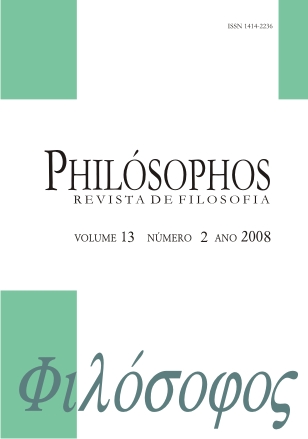NEITHER PHYSIS, NOR PSYCHÉ: THE ROLE OF STRUCTURE IN EPISTEMOLOGICAL REORGANIZATION OF PSYCHOANALYSIS
DOI:
https://doi.org/10.5216/phi.v13i2.4004Keywords:
Lacan, structure, psychoanalysis, history of sciences, Koyré.Abstract
The main aim of this paper is to discuss the meaning of Lacan's uses of the structural paradigm. The investigation will emphasize the function of this use in terms of relations between psychoanalysis and history of sciences. Freud, in order to establish the epistemological identity for psychoanalyses was impelled to choose between Naturwissenschaften or Geisteswissenschaften. By assuming the natural sciences model Freud has created what one can call a certain epistemological discomfort: model and object seems not to fit each other. The influence of Koyre's work is here remarkable. Lacan's uses of structural paradigm may be seemed as a strategy to create a new space for psychoanalysis in science. Only a structuralist science could formulate a conception of the subject that is nor naturalistic, nor psychological. This is showed particularly in what concerns the category of cause.Downloads
Downloads
Published
How to Cite
Issue
Section
License
Authors who publish in this journal agree to the following terms:
- Authors retain copyright and grant the journal right of first publication, with the work simultaneously licensed under a Creative Commons Attribution License that allows others to share the work with an acknowledgement of the work's authorship and initial publication in this journal.
- Authors are authorized to enter into separate, additional contractual arrangements for the non-exclusive distribution of the journal's published version of the work (e.g., publishing in an institutional repository or as a book chapter), with an acknowledgement of its authorship and initial publication in this journal.















